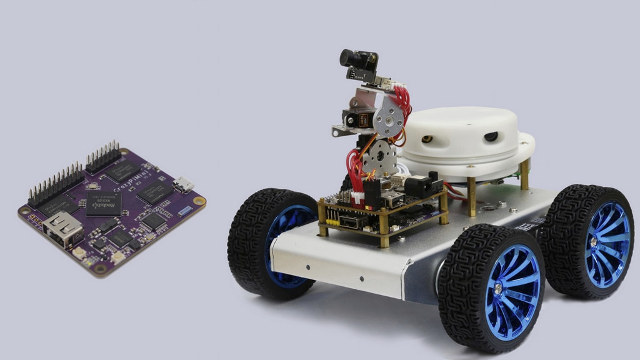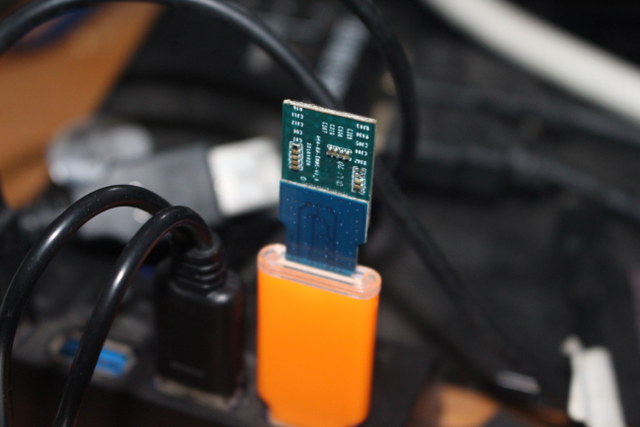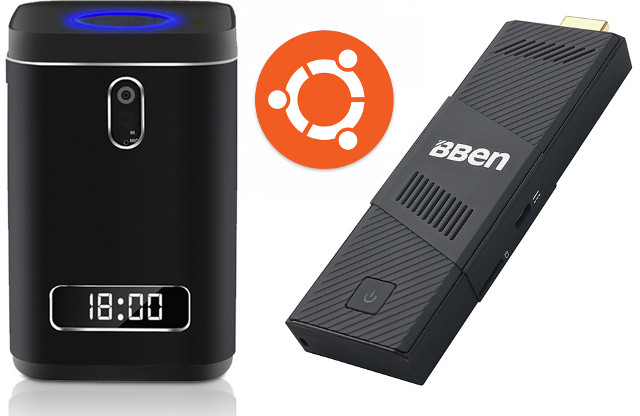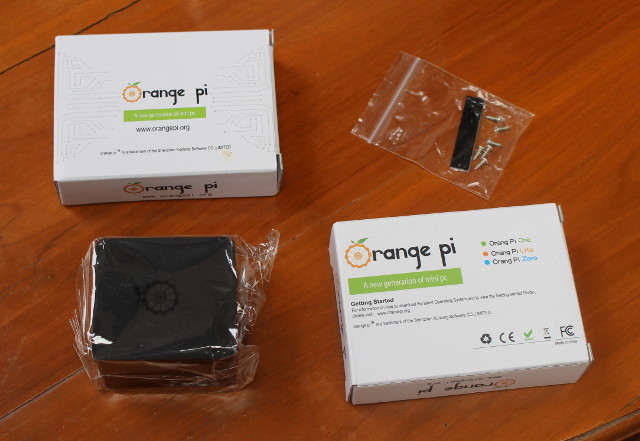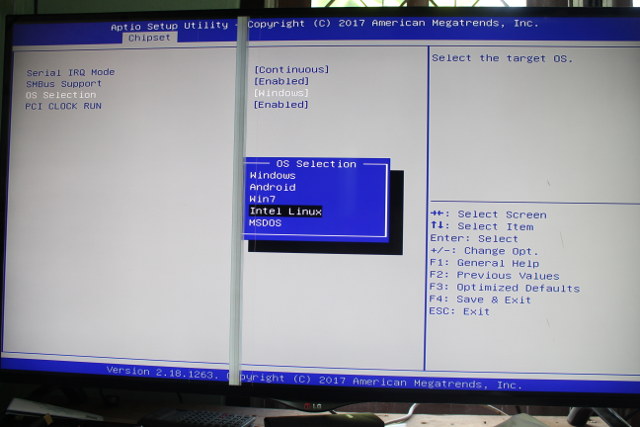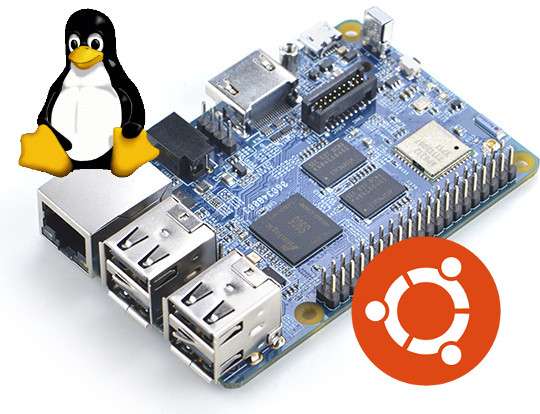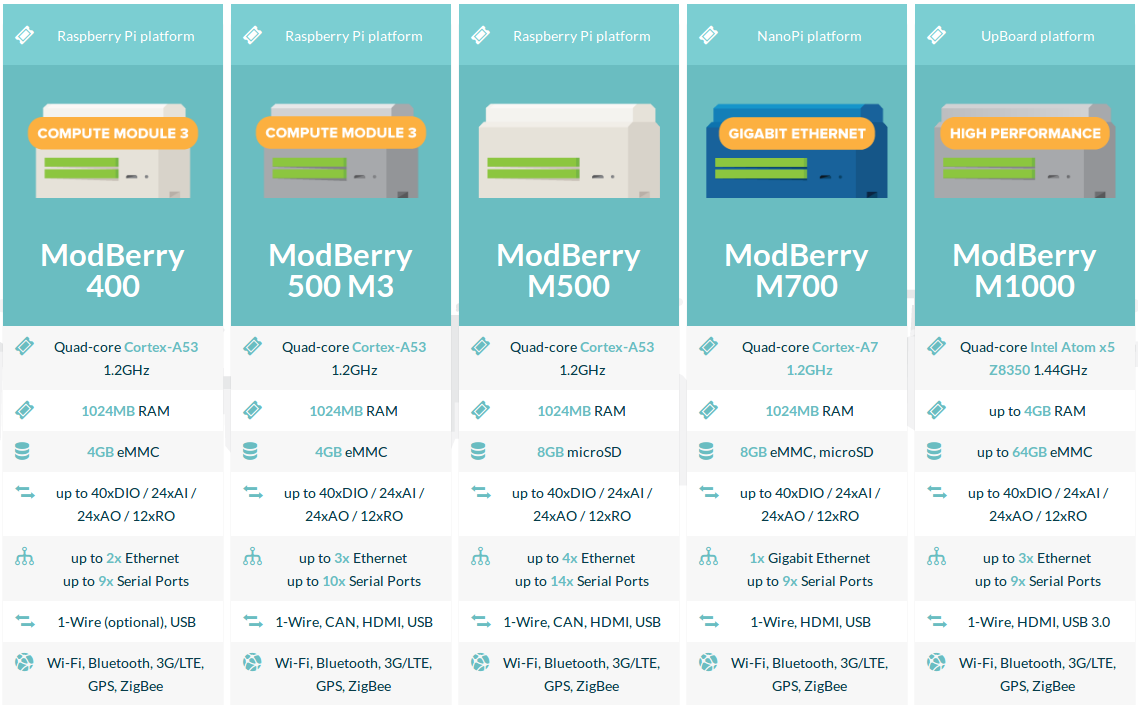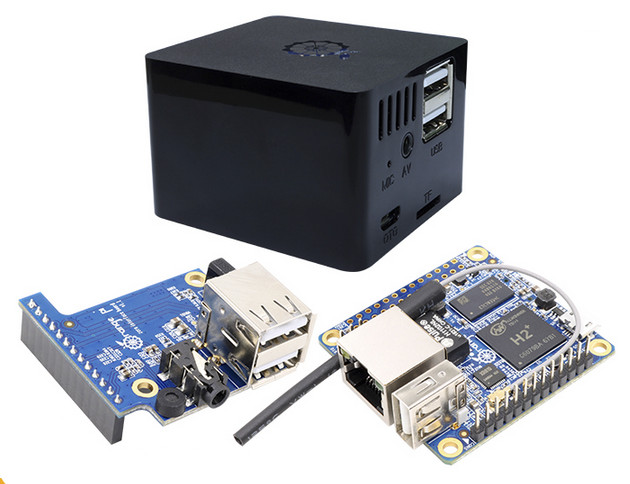CrazyPi is a maker board powered by Rockchip RK3128 quad core Cortex A7 processor that can take various magnetically connected modules such as LIDAR, gimbal, 4G LTE, etc.., and runs both Ubuntu and ROS (Robot Operating System) for DIY robotics & IoT projects. CrazyPi main board specifications: SoC – Rockchip RK3128 quad core Cortex A7 processor @ 1.2 GHz with ARM Mali GPU MCU – ARM Cortex-M3 @ 72 MHz System Memory – 1GB DDR3L @ 1066 MHz Storage – 16GB eMMC flash pre-loaded with Ubuntu and ROS Connectivity – 802.11 a/b/g/n WiFi @ 150 Mbps, Bluetooth 4.0 USB – 1x USB 2.0 host port Expansion Headers – Two headers with a total of 36-pin exposing 1x HDMI, 1x speaker, 1x microphone, 3x PWM, 1x I2C, 1x UART, 1x SPDIF, 1x SPI, 1x USB Power Supply – 5V via micro USB port ? Dimensions – Smaller than credit card The […]
ROCK64 Board Review – Part 2: Quick Start Guide with Ubuntu 16.04.3 MATE, Multimedia Features, Some Benchmarks
Pine64 ROCK64 is the first maker board based on Rockchip RK3328 processor, and is potentially interesting for various applications including network storage thanks to USB 3.0 and Gigabit Ethernet, multimedia applications with 4K HDR video support, as well as other applications requiring I/Os. I’ve already tested Rock64 board with Android 7.1 operating system, so today I’ll report by finding and experience with Ubuntu 16.04.3 with MATE desktop. Selecting and Flashing a Linux Image You’ll find several operating systems in the Wiki, but you’ll also find more cutting edge images in ayufan’s github. But first let me explain some vocabulary used for Pine64 firmware files: Engineering version – Becomes with release build based on the stock build develop by Pine64 and the SoC vendor. It’s supposed to be more stable, but get less updates Community versions (currently managed via ayufan) are more frequently updates, and comes with more recent features. You’ll find […]
Intel Mini PCs Sold with Ubuntu on Aliexpress
Many low power mini PCs equipped with Intel Bay Trail, Cherry Trail, Braswell, or Apollo Lake processors have been launched over the years, but most of those come pre-loaded with Windows 10, and many readers of this blog prefer to run a Linux distribution. It’s usually possible to install Ubuntu by yourself, but not always, and when you buy a Windows 10, this increases the price by several dollars (around $20). The ideal case would be to get such low power, low cost mini PCs pre-installed with a recent version of Ubuntu, without having to worry (too much) about hardware support, nor having to pay the “Windows tax”. MeLE used to sell Ubuntu mini PCs on Aliexpress, but sadly not anymore, so I went to Aliexpress to look for those Ubuntu mini PCs, and BBen offers three operating systems options for some of their systems with “Windows 10 Activated”, “Windows […]
How to Setup an Orange Pi Zero DIY Smart Speaker with Google Assistant SDK
A preview release of Google Assistant SDK working with Raspberry Pi 3 and other ARMv7 boards was released in May, and soon after, AIY Projects Voice Kit was offered for free with Raspberry Pi Magazine in order to a complete smart speaker kit working with RPi 3. I wanted to try it on one of FriendlyELEC or Shenzhen Xunlong Allwinner board, since all we need is audio input and output, and an Internet connection. Earlier this month, I came across Orange Pi Zero Set 6 Kit that had all I needed: Orange Pi Zero ARM Linux board, an expansion board with built-in microphone and audio output jack, and a cute and small case to neatly put everything together. Orange Pi Zero Set 6 Kit Unboxing and Assembly Shenzhen Xunlong sent me the kit so that I can try it out. The package includes two Orange Pi packages, the plastic case, […]
Running Ubuntu 16.04 on MeLE PCG03 Apo Mini PC
I completed my review of MeLE PCG03 Apo mini PC with Windows 10 about two weeks ago, and at the time when I tried Ubuntu, all I got was a black screen. MeLE said they would release an Ubuntu image for the board soon, so I did not investigate further. The company has now released Ubuntu 16.04 Desktop ISO via a link on Twitter together with (partial) instructions, and the company told me another company had worked on the image. I sent the link to Linuxium, as in the past MeLE or that other company used his work without asking. I turns out the ISO was identical to Ubuntu 16.04 Desktop ISO released in April last year.
|
1 2 |
linuxium@LINUXIUMONE:~/Downloads$ cmp -l ubuntu-16.04-desktop-amd64.iso.mele ubuntu-16.04-desktop-amd64.iso.canonical linuxium@LINUXIUMONE:~/Downloads$ |
Anyway, I still got the black screen issue using that image, and that’s because I first failed to find the option in the BIOS to change boot to Linux. When the mini […]
NanoPi K2 Board Gets Ubuntu Core Firmware Image
FriendlyELEC NanoPi K2 is a board powered by Amlogic S905 processor, just like ODROID-C2 board, so while only the Android image was available at launch, it was expected to also support Ubuntu or other Linux distribution shortly after. This was put in doubt by comments on the company’s forums claiming the board would not get Debian images, and only Android was supported. One alternative would be Armbian, but right now they only have ODROID-C2 images for download, no other Amlogic S905 hardware platform is supported either through stable or experimental builds. One user did manage to run Armbian on K2 with balbes150 help, but I’m not sure what’s the status of those firmware. Balbes150 also have a list of image for Amlogic platform in Github, which may be adapted to most hardware by using your board’s device tree binary (DTB) file. The good news today is that FriendyELEC did not give […]
ModBerry Industrial Automation Controllers Leverage Raspberry Pi, FriendlyELEC, and AAEON Boards and Modules
TECHBASE’s ModBerry Linux based industrial controllers have been around since 2014 with their first model being ModBerry 500 powered by a Raspberry Pi compute module. Over the years, the company has kept adding new ModBerry controllers with now an interesting choice of Raspberry Pi 3 board or compute module, FriendlyELEC’s NanoPi M1 Plus board, or Intel Atom x5 based AAEON’s UP board. All programmable automation controllers (PAC) runs Linux 4.0 or greater, with Debian or Ubuntu Core rootfs including ready tools and pre-compiled packs including C/C++, JAVA, SQL, PHP, SSH, and VPN support. The firmware is upgradeable over the air, and the controllers can run the company’s iMod control software and interface with iModCloud cloud computing service for telemetry, remote control and data sharing. Typical uses include C-L-V functions with conversion to collect and transmit data over communication interfaces, logging via iModCloud or a SCADA, and visualization via a web […]
$13 Orange Pi Zero Set 6 Kit Could Make an Inexpensive DIY Google Home Alternative
Since Google released the Google Assistant SDK for Raspberry Pi 3, and other ARMv7 boards, I thought I should it try myself on one of the tiny headless boards I have, as you just need audio output and a microphone. I first planed to use NanoPi NEO board with NanoHAT PCM5102A audio board, a cheap USB microphone, and pair of speakers, but this morning, I’ve come across Orange Pi Zero Set 6 kit that looks perfect for this applications and sells for just $12.95 plus shipping ($18.27 in total for me) with Orange Pi Zero board, Orange Pi Zero interface board, and a case. Orange Pi Zero board is powered by Allwinner H2+ quad core Cortex A7 processor with 512MB RAM, and can run the required Ubuntu/Debian distribution using one of the Armbian images, and connected to the Internet over Ethernet or WiFi, however if you want to use the […]


